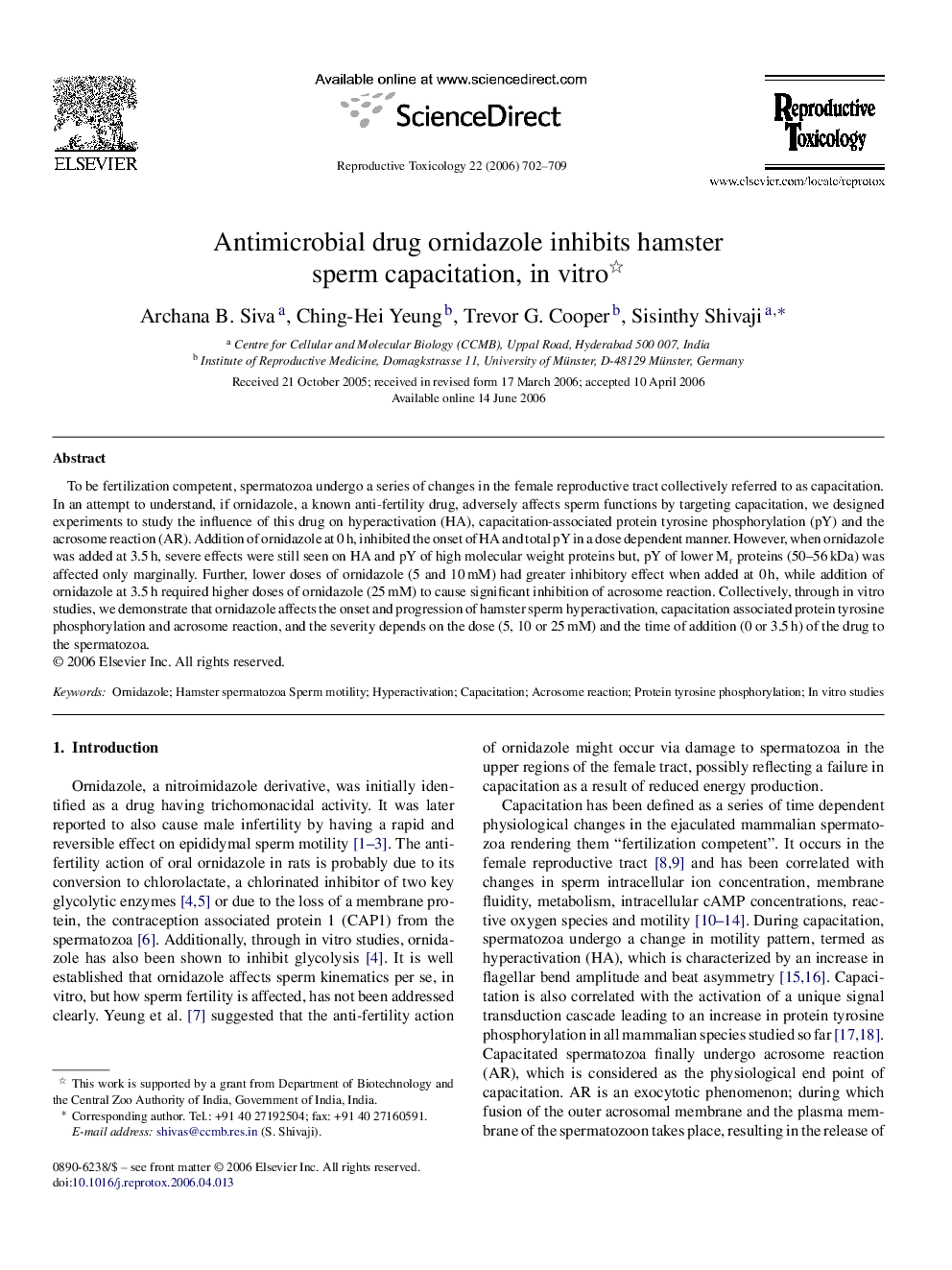| کد مقاله | کد نشریه | سال انتشار | مقاله انگلیسی | نسخه تمام متن |
|---|---|---|---|---|
| 2594634 | 1132275 | 2006 | 8 صفحه PDF | دانلود رایگان |

To be fertilization competent, spermatozoa undergo a series of changes in the female reproductive tract collectively referred to as capacitation. In an attempt to understand, if ornidazole, a known anti-fertility drug, adversely affects sperm functions by targeting capacitation, we designed experiments to study the influence of this drug on hyperactivation (HA), capacitation-associated protein tyrosine phosphorylation (pY) and the acrosome reaction (AR). Addition of ornidazole at 0 h, inhibited the onset of HA and total pY in a dose dependent manner. However, when ornidazole was added at 3.5 h, severe effects were still seen on HA and pY of high molecular weight proteins but, pY of lower Mr proteins (50–56 kDa) was affected only marginally. Further, lower doses of ornidazole (5 and 10 mM) had greater inhibitory effect when added at 0 h, while addition of ornidazole at 3.5 h required higher doses of ornidazole (25 mM) to cause significant inhibition of acrosome reaction. Collectively, through in vitro studies, we demonstrate that ornidazole affects the onset and progression of hamster sperm hyperactivation, capacitation associated protein tyrosine phosphorylation and acrosome reaction, and the severity depends on the dose (5, 10 or 25 mM) and the time of addition (0 or 3.5 h) of the drug to the spermatozoa.
Journal: Reproductive Toxicology - Volume 22, Issue 4, November 2006, Pages 702–709